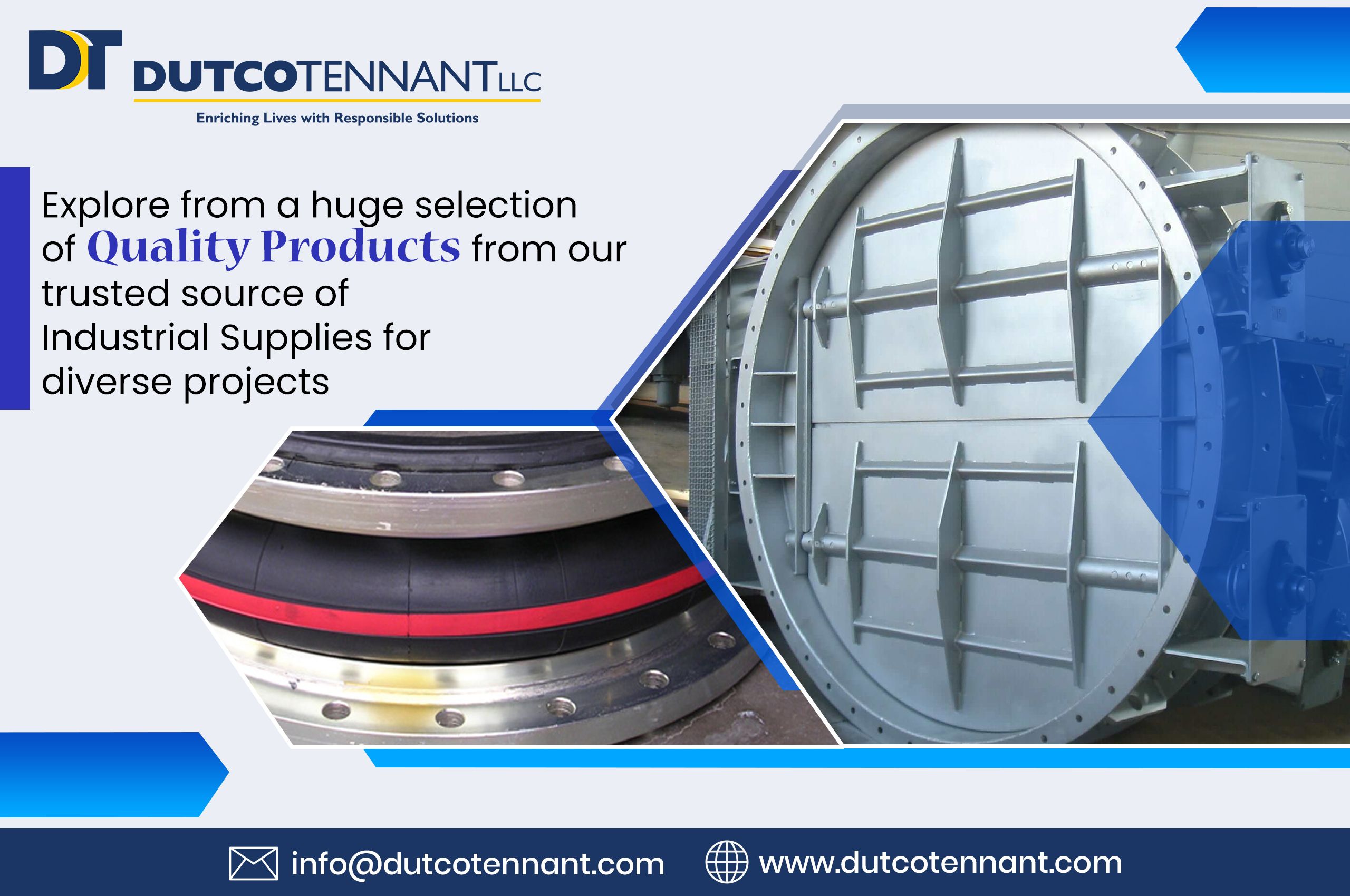
5 Obvious Benefits of Choosing Non-Metallic Expansion Joints

Pipelines are an essential component of many industries which is why they are among the common industrial supplies. They are used to transport fluids, gases, and other materials over long distances. However, over time, pipelines can experience expansion and contraction due to temperature changes, pressure fluctuations, and other factors.
This expansion and contraction can cause stress on the pipeline, leading to leaks, cracks, and other types of damage. To prevent this, many pipelines use expansion joints, which are designed to absorb the movement and stress caused by expansion and contraction.
Traditionally, metallic expansion joints have been the standard for many pipelines, but non-metallic expansion joints are gaining popularity for several reasons. In this blog, we'll explore the obvious benefits of using non-metallic expansion joints for pipelines. Read more to find out.
1. Chemical Resistance
One of the significant benefits of non-metallic expansion joints is their chemical resistance. These expansion joints are designed to withstand exposure to harsh chemicals, acids, and other corrosive substances.
In contrast, metallic expansion joints can be vulnerable to corrosion, which can weaken the joint and cause leaks or other types of damage. Therefore, the use of a non-metallic expansion joint is a common sight in applications where the flowing media is corrosive chemicals.
2. Lightweight and Easy to Install
Non-metallic expansion joints are lightweight and easy to install, which can save time and money during the installation process. Because they are lighter than metallic expansion joints, they require less support, which can simplify the installation process.
Moreover, non-metallic expansion joints do not require any welding, which can be time-consuming and expensive. For a more hassle-free installation, these expansion joints are a preferred choice.
3. High Temperature Resistance
Non-metallic expansion joints are capably designed to withstand high temperatures. Some non-metallic expansion joints can withstand temperatures even more than 450 degrees Fahrenheit, which is higher than the temperature limits of many metallic expansion joints.
This makes non-metallic expansion joints ideal for pipelines that transport hot liquids or gases. Dutco Tennant LLC is non-metallic expansion joint supplier for pipeline applications that have a product with temperature ranging from 149 degrees Fahrenheit to over 2552 degrees Fahrenheit. Now that is an exceptional temperature resistance capacity.
4. Reduced Noise and Vibration
Non-metallic expansion joints can help reduce noise and vibration in pipelines. When pipelines expand and contract, they can create noise and vibration, which can be disruptive and potentially damaging.
Non-metallic expansion joints are designed to absorb this movement and reduce the amount of noise and vibration produced. Opting for these expansion joints mean you get undisruptive performance while eliminating negative impacts of movements on pipelines.
5. Cost-Effective
Last but not the least, non-metallic expansion joints can be comparatively cost-effective than metallic expansion joints. Because they are lightweight and easy to install, they require less support and labour, which can save money during the installation process.
Furthermore, non-metallic expansion joints require less maintenance than metallic expansion joints, which can save money over the long term.
Conclusion
These are a few of the standard benefits of using non-metallic expansion joints over metallic ones. The above enumerated perks make non-metallic expansion joints an ideal choice for pipelines in many industries, including chemical processing, oil and gas, and water treatment. If you are looking for this particular product among other industrial supplies then be sure to choose a trusted distributor.
Appreciate the creator